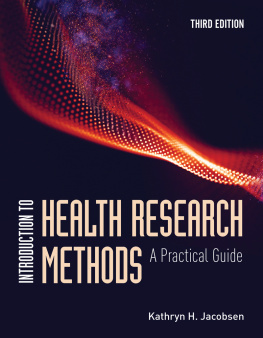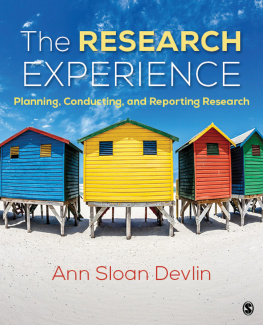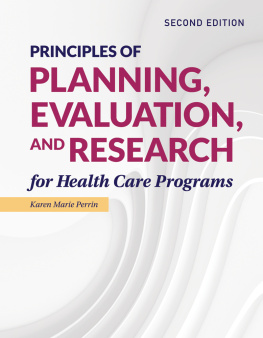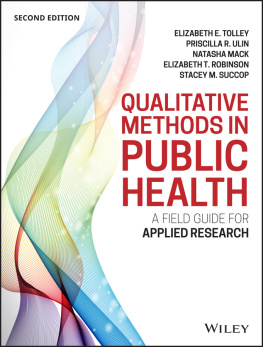Contents

World Headquarters
Jones & Bartlett Learning
5 Wall Street
Burlington MA 01803
978-443-5000
www.jblearning.com
Jones & Bartlett Learning books and products are available through most bookstores and online booksellers. To contact Jones & Bartlett Learning directly, call 800-832-0034, fax 978-443-8000, or visit our website, www.jblearning.com.
Substantial discounts on bulk quantities of Jones & Bartlett Learning publications are available to corporations, professional associations, and other qualified organizations. For details and specific discount information, contact the special sales department at Jones & Bartlett Learning via the above contact information or send an email to .
Copyright 2021 by Jones & Bartlett Learning, LLC, an Ascend Learning Company
All rights reserved. No part of the material protected by this copyright may be reproduced or utilized in any form, electronic or mechanical, including photocopying, recording, or by any information storage and retrieval system, without written permission from the copyright owner.
The content, statements, views, and opinions herein are the sole expression of the respective authors and not that of Jones & Bartlett Learning, LLC. Reference herein to any specific commercial product, process, or service by trade name, trademark, manufacturer, or otherwise does not constitute or imply its endorsement or recommendation by Jones & Bartlett Learning, LLC and such reference shall not be used for advertising or product endorsement purposes. All trademarks displayed are the trademarks of the parties noted herein. Introduction to Health Research Methods: A Practical Guide, Third Edition is an independent publication and has not been authorized, sponsored, or otherwise approved by the owners of the trademarks or service marks referenced in this product.
There may be images in this book that feature models; these models do not necessarily endorse, represent, or participate in the activities represented in the images. Any screenshots in this product are for educational and instructive purposes only. Any individuals and scenarios featured in the case studies throughout this product may be real or fictitious, but are used for instructional purposes only.
This publication is designed to provide accurate and authoritative information in regard to the Subject Matter covered. It is sold with the understanding that the publisher is not engaged in rendering legal, accounting, or other professional service. If legal advice or other expert assistance is required, the service of a competent professional person should be sought.
Production Credits
VP, Product Management: Amanda Martin
Director of Product Management: Cathy Esperti
Product Manager: Sophie Fleck Teague
Product Specialist: Sara Bempkins
Project Manager: Kristen Rogers
Project Specialist: Brooke Haley
Digital Project Specialist: Angela Dooley
Senior Marketing Manager: Susanne Walker
VP, Manufacturing and Inventory Control: Therese Connell
Manufacturing and Inventory Control Supervisor: Amy Bacus
Composition: Exela Technologies
Cover Design: Timothy Dziewit
Text Design: Kristin E. Parker
Senior Media Development Editor: Troy Liston
Rights Specialist: Maria Leon Maimone
Cover Image (Title Page, Part Opener, Chapter Opener): DmitriyRazinkov / Shutterstock
Printing and Binding: TO BE DETERMINED
Cover Printing: TO BE DETERMINED
Library of Congress Cataloging-in-Publication Data
Names: Jacobsen, Kathryn H., author.
Title: Introduction to health research methods / Kathryn Jacobsen.
Description: Third edition. | Burlington, MA : Jones & Bartlett Learning, [2021] | Includes index.
Identifiers: LCCN 2019047577 | ISBN 9781284197631 (paperback)
Subjects: MESH: Biomedical Researchmethods | Research Design
Classification: LCC R852 | NLM W 20.5 | DDC 610.72/4dc23
LC record available at https://lccn.loc.gov/2019047577
6048
Printed in the United States of America
24 23 22 21 20 10 9 8 7 6 5 4 3 2 1

DmitriyRazinkov/Shutterstock
Condensed Table of Contents

DmitriyRazinkov/Shutterstock
Contents

DmitriyRazinkov/Shutterstock
Preface
Research is the necessary foundation for meaningful improvements in clinical and public health practice. Research helps us learn how to be healthier and how to help our families, friends, patients, communities, and nations improve and maintain their health. We rely on researchers to identify risk factors for infections, noncommunicable diseases, and injuries and to determine which interventions are most effective at preventing adverse health conditions and improving individual and community health status. But it is not just the outcomes of research that make research rewarding. The research process itselfthe systematic exploration of the unknown that discovers answers to important questionscan be exciting. The goal of this book is to make the health research process accessible, manageable, and perhaps even enjoyable for new investigators.
This is not a book about the theory of research; it is a book about how to do research. The book provides a practical, step-by-step guide to the entire research process. All research projects follow the same steps: identifying a focused research question, choosing a study design, collecting data that will answer the question, analyzing the accumulated evidence, and disseminating the findings. The investigation proceeds through these same basic steps regardless of whether the researchers are surveying community members, running clinical trials, conducting focus groups, analyzing existing data sets, or synthesizing the existing literature through meta-analysis. The same steps are followed whether the researcher is trained in medicine, nursing, public health, dentistry, physical therapy, occupational therapy, dietetics and nutrition, athletic training, health policy, psychology, sociology, counseling, speech-language pathology, respiratory therapy, radiation technology, pharmacy, podiatry, optometry, audiology, or any other clinical or social science discipline. The steps are the same regardless of whether the investigator is an undergraduate student, a masters or doctoral candidate, or a seasoned professional.
Health research is an intentional process that requires fastidiousness and perseverance, but it does not have to be complicated. Anyone who is willing to follow the steps outlined in this guidebook can conceptualize a research project and see it through to completion. Pursuing a research project may lead to the acquisition of new skills, the fulfillment of degree or work requirements, the satisfaction of personal curiosity, and even the opportunity to become a published author. More importantly, every project, no matter how modest, has the potential to contribute to expanding the knowledge base for the health sciences. Researchers who see their projects through to completion may eventually see their findings translated into improved patient care, enriched organizational effectiveness, and enhanced community health. This book is an invitation to make your own contribution to the evidence base that will inform future decisions about promoting healthy behaviors, allocating health resources, and preventing, diagnosing, and treating diseases.










